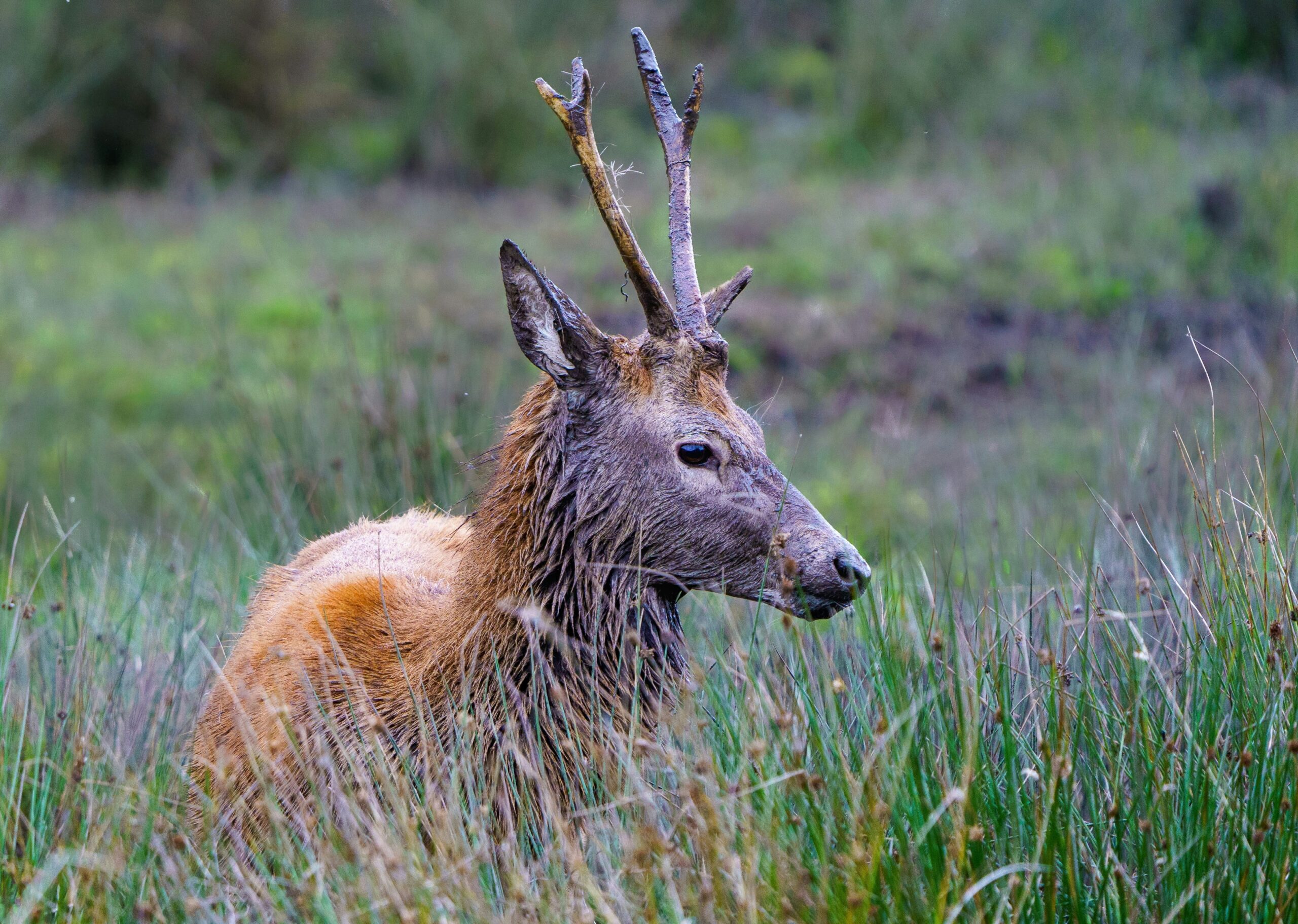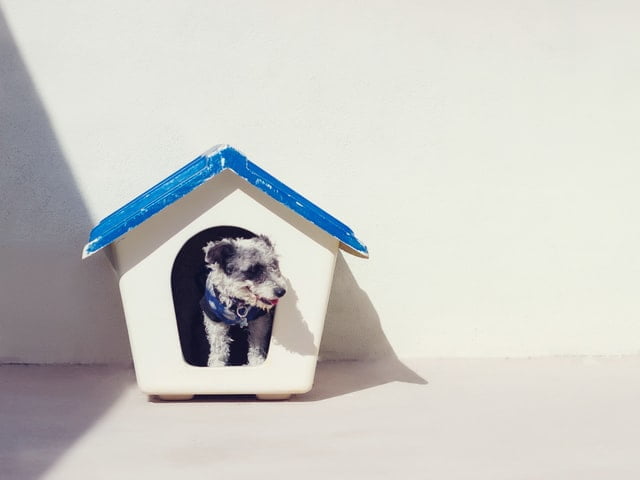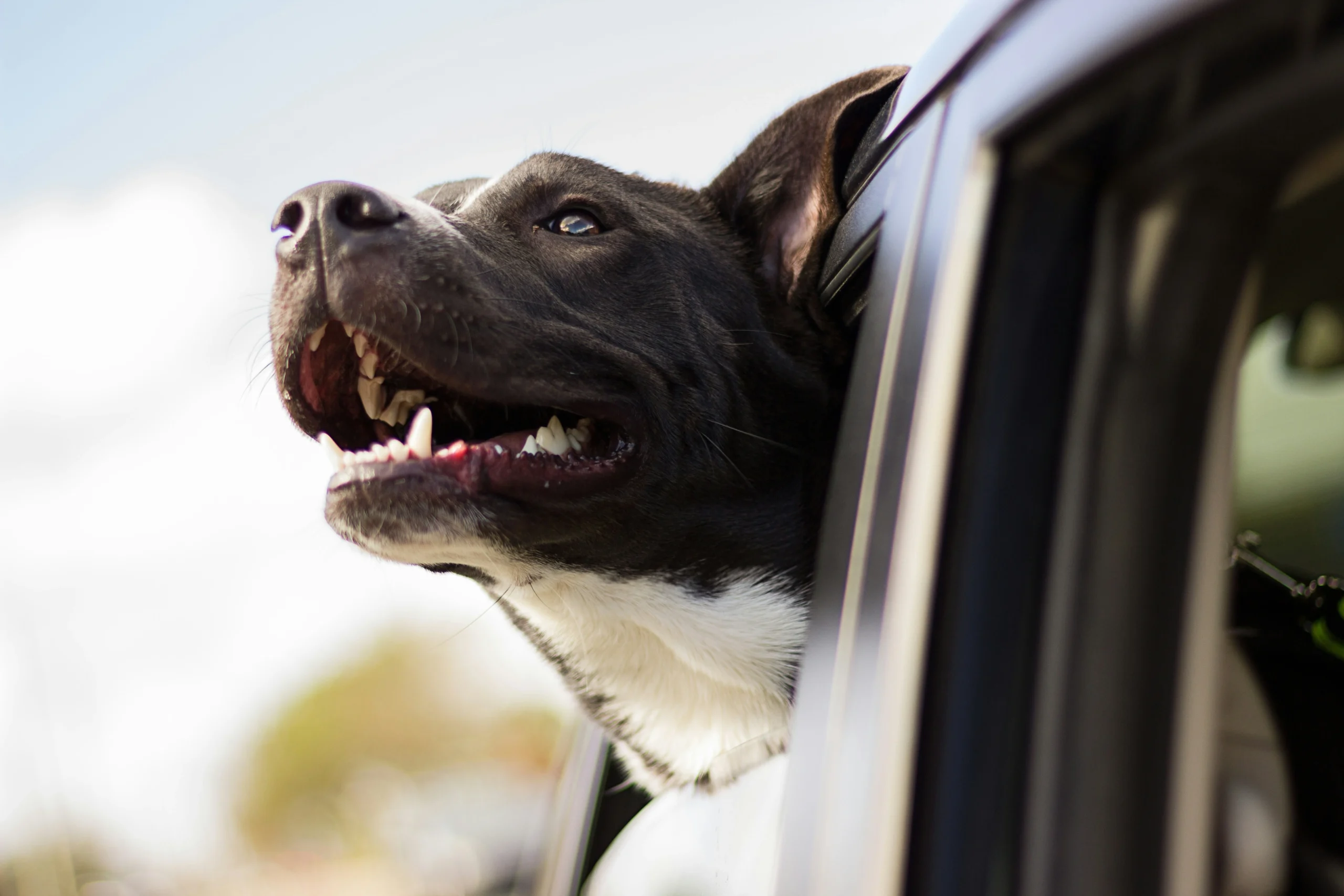Pets and Poisonous Things
Your pet’s environment is filled with potential poisons and toxic substances that you might not think too much about on a daily basis. However, it’s crucially important to know about the items in your home, garden, and walking route that pose a danger to your pet, and how to spot if they’ve been poisoned.
So, how can you tell if your pet has been poisoned? Signs and symptoms of pet poisoning will differ by breed, size, age, and existing health conditions, as well as the poison in question. However, common signs include a change in behaviour, mouth irritation, sickness and diarrhoea, visible burns or bruising, breathing problems, and convulsions.
If you have an immediate concern don’t hesitate to call us right away on 01565 337 999
Read on to learn more about spotting the signs of poisoning in pets, common household and environmental poisons, and what to do if you think that your pet has been poisoned.
How to Tell If Your Pet Has Been Poisoned
Every animal will respond differently to poisons, depending on their breed, size, age, existing conditions, and how much of the poison that they have consumed. It’s also important to note that the symptoms of poisoning can progress if they aren’t picked up quickly.
Some of the more common signs of poisoning in pets include:
Agitation/Change in Behaviour
You may notice a change in behaviour after your pet eats a toxin, however this will differ based on the type of toxin ingested. For example, stimulants such as chocolate and caffeine may make your pet hyperactive and excitable, whilst a sedative or alcohol may result in depressive behaviour and minimal responsiveness.
Note that any extreme changes in behaviour should be cause for concern. Consult your vet in these circumstances.
Excessive/Irregular Drooling
Many pets will experience irritation at the mouth after consuming poison. If you notice your pet excessively drooling or foaming at the mouth, try to remember what your pet has eaten, take a sample, and contact your vet for further advice.
Sickness & Diarrhoea
Some poisons can cause gastrointestinal problems, such as sickness and diarrhoea. This is one of the more common signs that your pet had ingested a poison.
Nausea
If your pet suddenly develops loss of appetite, and/or seems nauseous, this may be a sign that they have consumed something toxic. If you are unsure what may have caused this, consult your vet for further advice.
Excessing Bruising or Bleeding
Excessive bruising, bleeding, sores, and burns are signs of external poisoning or caustic substances. This may be the result of plants or chemicals. If you think your pet has come into contact with such a poison, be sure to try and remove toxic substances from the area as soon as possible to minimise irritation. Use paper towels or clean towels to do this. Contact your veterinarian for further advice.
Breathing Problems
There are certain poisons that can affect your pet’s respiratory system, and may cause wheezing, laboured breathing, shortness of breath, slowed breathing, or difficulty breathing. If you believe that your pet is having breathing problems, consult your vet as a matter of urgency.
Convulsions, Seizures, and Spasms
Many toxins have the potential to affect the nervous system, but prescription medications and toxic plants are common offenders. As such, this can lead to convulsions, seizures, tremors, and muscle spasms. Unless your pet has a condition, (e.g. epilepsy) such symptoms are not normal and should be seen by a vet as soon as possible. These types of toxins can work quickly, with severe consequences.
Common Household Items That May Be Toxic to Your Pet
Your home is full of hidden dangers for pets, and it’s important to be aware of items in your home that are poisonous. For some of these, you may think they’re perfectly harmless, or that they’re out of the reach of your pets, but it’s imperative that you’re aware of common household poisons to keep your pets safe.
Caffeine
Chocolate
Alcohol
Macadamia Nuts
Grapes and other Dried Fruit
Onions
Garlic
Artificial sweeteners such as Xylitol*
*found in common substances such as chewing gum mints, toothpaste, diabetic foodstuffs, sugar free foodstuffs, and vitamins and supplements
Mushrooms
Lily
Ethylene Glycol
Mince Pies
Medicines
Some human medications are toxic to pets and can cause convulsions, spasms, tremors, and seizures. Even where medication is not inherently toxic, it isn’t formulated for specific animal conditions. Additionally, the dosage of medication is not tailored to the size and weight of pets, where humans are considerably larger than most pets, and can tolerate higher dosages. With these higher, human dosages, pets may overdose.
Be sure to keep these firmly out of your pet’s reach, and only consider taking them when your pet is not around to avoid accidents. This doesn’t just relate to prescription medications. Did you know that the simple, everyday medication paracetamol can be deadly to cats?
Mould
This may be a more obvious poison, and we’re sure that you’d never intentionally feed your pet mouldy food, however, you must ensure that your pet cannot accidentally consume mouldy food (e.g. from the bin). Mould contains mycotoxins, which can cause symptoms such as tremors, seizures, panting, vomiting, weakness, and loss of appetite.
Mould doesn’t just grow on food and, as such, you will need to inspect your home for mould regularly.
Plants & Garden
There are a whole range of plants, flowers, and other garden items that are toxic to pets. Therefore, it’s important to be aware of such dangers before purchasing them, or until you can find a suitable place to store them.
- Plant bulbs, particularly snowdrops, bluebells, daffodils, hyacinths, tulips, irises and crocuses.
- Fertilisers
- Moss
- Weed killers
- Rat and other pet poisons and baits
- Flowers and plants
Other Household Items
Other poisonous household items may include:
- Antifreeze
- Batteries
- Homemade playdough/salt dough
- Household cleaners
Common Environmental Things That May Be Toxic to Your Pet
There are a great deal of hidden dangers that you and your pet may encounter in the great outdoors, and a few things to watch out for when walking your dog. Below we’ve outlined some of the most common environmental toxins for each season, so that you can keep your pet a little bit safer outdoors.
Spring
Common harmful environmental things to watch out for in spring include:
- Adders
- Spring flowers
- Lungworm
- Alabama Rot
Summer
Common environmental toxins to watch out for in summer include:
- Algae
- Grass seeds
- Bee or wasp stings
- Fleas
- Fungi
- Adders
Autumn
Common environmental toxins to watch out for in autumn include:
- Acorns
- Conkers
- Decaying plant matter
- Fungi
- Fleas
Winter
Common environmental toxins to watch out for in winter include:
- Fungi
- Fleas
- Antifreeze
- Grit & other road salts
- Christmas treats – take a look at our blog all about common dangers for pets at Christmas time.
Year Round Dangers
There are some dangers and environmental toxins that are present all year round. These include:
- Ticks
- Poisonous plants
- Trash
- Water safety
10 Spring Plants and Flowers that are Safe for Pets
We know that there are a number of plants and flowers that can be poisonous to pets, but do you know your springtime dangers? It’s important to be aware of these springtime toxic plants so that you can avoid them on your walks, and be sure not to buy them when sprucing up your home and garden.
Below you’ll find a list of springtime plants and flowers that are safe and toxic for pets.
10 Safe Springtime Plants & Flowers for Pets
If you’re looking to spruce up your home and garden for spring, here are a few safe, non-toxic plants and flowers to look out for.
- Palm Plants – Such as the Parlor Palm and Ponytail Palm. However, beware of the toxic Sago Palm.
- Roses – A classic crowd pleaser, and safe for pets
- Snapdragons – An annual plant that is non-toxic to pets
- Marigolds – Safe as long as your pet doesn’t take more than a few bits (but this should only cause an upset stomach, at worst)
- Pansies – Not only non-toxic, but apparently tasty for dogs
- Sunflowers – Bring some sunshine to your garden with non-toxic sunflowers
- African Violets – These springtime houseplants a beautiful mix of plant and flower, and are safe to have around pets
- Spider Plants – Safe for pets, but also look great when hung up high as to not tempt them
- Haworthia Succulents – Haworthia Succulents are easy to look after and are non-toxic to pets. However, beware of the similar-looking Aloe Vera plant which is toxic.
- Gerbera Daisies – Bright, cheerful, and non-toxic
5 Toxic Springtime Plants & Flowers for Pets
Whilst not an exhaustive list, here are a few common springtime plants and flowers that are toxic, and can cause serious health problems for your pets.
- Lilies – Lilies are a favourite of many but some varieties are poisonous to pets – Tiger Lily, Stargazer Lily, Casablanca Lily, Japanese Show Lily, and others.
- Crocuses – All varieties of crocuses are poisonous, and can cause vomiting, gastrointestinal bleeding, liver and kidney damage, and respiratory failure.
- Daffodils – Even just licking a daffodil can cause health problems such as mouth irritation, excessive drooling, vomiting, abdominal pain, diarrhoea, and respiratory problems.
- Tulips – Another springtime favourite that can cause serious damage, with symptoms as previously stated. However, there is no antidote to the ingestion of tulips, so veterinary treatment should be sought immediately.
- Hyacinths – With similar dangers to tulips, you should consult your vet immediately if your pet ingests hyacinths.
What To Do If Your Pet Has Been Poisoned
If you think your pet has been poisoned, you should consult your veterinarian as soon as possible, but here are a few steps you can take in the meantime.
- If the poisoning is the result of toxic fumes or gas, get your pet to fresh air immediately
- If your pet was poisoned by caustic or chemical substances, wear protective gloves and remove the substances from the skin by hand or use paper towels or clean towels to remove liquids. Never use water or other solutions, unless advised by your vet
- Do not induce vomiting if you suspect your pet ingested a poison
- Try to identify the poison – think about what your dog could have eaten or had contact with. This may help your vet with diagnosis and treatment
Inducing Vomiting
If your pet doesn’t require emergency treatment to aid their breathing or other critical functions, your vet may first try to induce vomiting in order to remove the poison from the system. However, this can sometimes cause more harm than good, so do not be tempted to try this unless you have been advised to do so by your veterinarian.
Endoscopy
Your vet may choose to carry out an endoscopy to check your pet’s digestive system internally. This will give them a better understanding of how the poison has affected your pet, and can inform suitable treatment.
Medications
In cases where the poison has had time to absorb into the body, your vet may use charcoal to help prevent the poison from absorbing further. Your vet may also prescribe medication to treat the damage caused to your pet’s system by the poison, and help restore normal function. Another option that your vet may take is fluid therapy.
Flushing the Stomach
Your vet may flush your pet’s stomach to try to remove any traces of poison, so that it is not further absorbed into the system.
How Is Poisoning in Pets Diagnosed?
Often, diagnosis can only be made if you have actually observed your pet ingesting or coming into contact with a toxic substance. However, here at Knutsford Vets, we can now send samples of vomit or other bodily fluid from your pet and send it off to a specialist laboratory to determine the exact toxin that is making your pet ill. Results do take a few days but can then help our vets to determine a suitable treatment plan.
How is Poisoning in Pets Treated?
If your vet is aware of the poison that your pet has come into contact with, they will sometimes be able to give an antidote, if there is one available. However, if the specific poison is uncertain, or there is no antidote, your vet has a number of options to help treat your pet. These can include:
Can You Treat a Poisoned Pet at Home?
In all cases of pet poisoning, you should consult your vet as soon as possible. They will be able to give you advice on first aid and what to do to care for your pet until you can get to the surgery. Once your pet has been examined, you may be able to take your pet home and treat them yourself, following your vet’s treatment plan. Alternatively, you may find that your vet provides initial treatment at the surgery, and provides instruction for further care at home.
How To Prevent Your Pet From Being Poisoned
As in all walks of life, the best thing you can do is to take steps to prevent disasters from happening in the first place, and this is especially true of pet poisoning. Here are a few simple ways that you can prevent your pet from being poisoned:
Keep your pet away from areas where you know toxic substances are being used. For example, when you’re cleaning, try to keep your pet in a different room, or have someone take them for a walk. Likewise, if you have toxins in your garage, don’t let you pet in there under any circumstances.
Make sure that any common household poisons are stored safely out of the reach of your pets when not in use.
If you’re a plant or flower lover, make sure to only purchase non-toxic ones.
When walking your dog, keep an eye out for common environmental poisons and stay well clear.
If your pet takes medication, be sure to label it carefully and store it away from human medications to avoid accidents.
At Knutsford Vets, we’re here to support your pet’s healthcare journey. That means helping to diagnose and treat poisoning in pets. If you think that your pet has been poisoned, get in touch with us immediately, and our team will be able to advise you on the best course of action.
Our emergency veterinary care services are here to cover you day or night.





